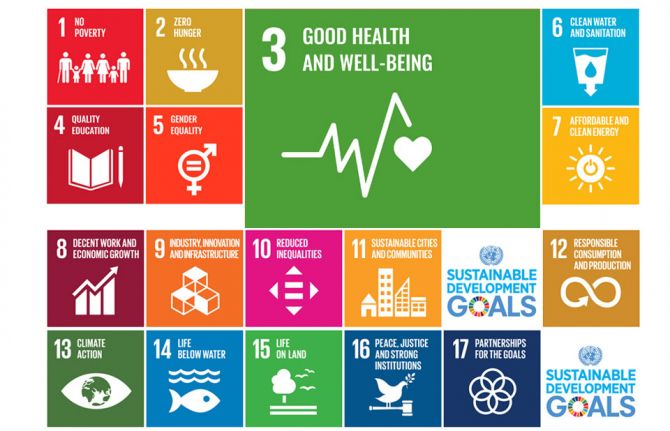

Press Statement
UNAIDS to work with United Nations Member States for a decade of action and delivery to achieve the Sustainable Development Goals
24 September 2019 24 September 2019United Nations Member States launch an ambitious and accelerated response to achieve the Sustainable Development Goals by 2030
NEW YORK/GENEVA, 24 September 2019—United Nations Member States have pledged to accelerate common efforts to achieve the Sustainable Development Goals (SDGs) by 2030, which include, under SDG 3, Good Health and Well-Being, ending AIDS. In a political declaration adopted by United Nations Member States at the summit on the Sustainable Development Goals, held on 24 and 25 September, United Nations Member States confirmed that the goals remain in reach if countries embrace transformation and accelerate implementation.
“What the Sustainable Development Goals give us is an extraordinary opportunity to create a better world for people to live in,” said Gunilla Carlsson, UNAIDS Executive Director, a.i. “As part of a better world we need to end AIDS, and ending AIDS requires achieving the Sustainable Development Goals—and to do this we need to work together. There are 17 Sustainable Development Goals, but one common vision—to join hands to build a better future.”
The 17 SDGs, adopted by all United Nations Member States in 2015, are the world's best plan to build a better world for people and the planet by 2030. They are a call to action by all countries to promote prosperity while protecting the environment. In adopting the new political declaration, Member States have reaffirmed their commitment to the core principle of the 2030 Agenda for Sustainable Development—to leave no one behind.
UNAIDS welcomes the commitment by Member States to leave no one behind and take to scale what the AIDS response has been working towards for nearly 40 years—a multisectoral, rights-based, people-centred approach that addresses entrenched social norms, social exclusion and legal barriers that undermine health and development outcomes.
The AIDS response is deeply interwoven with, and dependent upon, progress across sectors covered by the different SDGs and collective work on ending the AIDS epidemic by 2030 will accelerate progress across a range of SDG targets.
UNAIDS will continue to work with Member States to end AIDS by 2030 and will boost efforts to make meaningful contributions to advances in the wider development goals, in particular by accelerating work around the SDGs most relevant to the AIDS response: good health and well-being; gender equality; reduced inequalities; peace, justice and strong institutions; and partnerships for the goals. Achieving the 2030 Agenda for Sustainable Development will improve the lives of everyone, everywhere.
UNAIDS
The Joint United Nations Programme on HIV/AIDS (UNAIDS) leads and inspires the world to achieve its shared vision of zero new HIV infections, zero discrimination and zero AIDS-related deaths. UNAIDS unites the efforts of 11 UN organizations—UNHCR, UNICEF, WFP, UNDP, UNFPA, UNODC, UN Women, ILO, UNESCO, WHO and the World Bank—and works closely with global and national partners towards ending the AIDS epidemic by 2030 as part of the Sustainable Development Goals. Learn more at unaids.org and connect with us on Facebook, Twitter, Instagram and YouTube.
